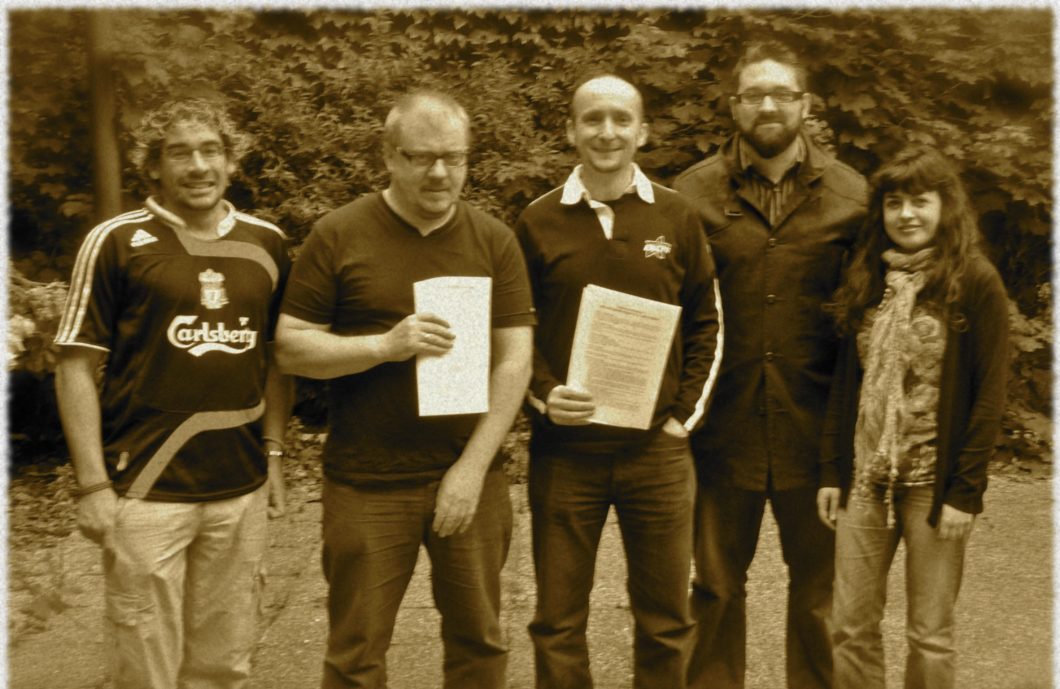23/03/23
English Coaching Projects S.Coop was founded almost 13 years ago. One of our ideals was to create a workplace where there would be no bosses. Coach John reflects on the experience.
Click HERE to download the Weekly English Practice as a PDF.
Useful Vocabulary
follow through: to pursue (an aim) to a conclusion
gripes: : complaints
bootblacks: people who clean shoes
snobbishness: trying to act like those higher in social rank. A snob admires such people too much and looks down on others
money-grubbing: Someone who has money as their main interest and does anything possible to get a lot of it
tainted: havinga trace of something bad, offensive, or harmful
halcyon days: joyful, happy, carefree times
glimpse: a very brief passing look, sight, or view
Listen to the audio and read the text.
A world without bosses – is it possible?
“We share a lateral style organisation, where there is no director, boss or manager figure, where there are no closed spaces for particular uses, where all people are in one or more self-managed teams and which, in short, is a people-based organisation, focused on the customer and efficiency, which actively coexists with society.”
Koldo Saratxaga was an intellectual inspiration for the founders of English Coaching Projects.
The origin of boss is the Dutch word baas, meaning master. The first known use was in 1653.
Here are 10 common complaints about bosses:
- Micromanages me
- Doesn’t listen to me
- Doesn’t want to have their opinions and ideas challenged
- Doesn’t follow through on promises
- Assigns deadlines without considering what’s on my plate
- Doesn’t have time for me
- Doesn’t give helpful feedback about my performance
- Is disorganised and reactive
- Never thanks me for my work
- Is a bastard!
Those are gripes we all may have about bosses, but is it possible to work and live without them?
George Orwell, in his book Homage to Catalonia, made the following observation:
“Every shop and cafe had been collectivised; even the bootblacks had been collectivised and their boxes painted red and black. Waiters and shop-walkers looked you in the face and treated you as an equal. Servile and even ceremonial forms of speech had temporarily disappeared.
Many of the normal motives of civilised life –snobbishness, money-grubbing, fear of the boss, etc. – had ceased to exist. The ordinary class-division of society had disappeared to an extent that is almost unthinkable in the money-tainted air of England; there was no one there except the peasants and ourselves, and no one owned anyone else as his master.”
Words written during the halcyon days of the Spanish revolution, but a short-lived glimpse that workers can live without bosses and that another, better world is possible.
by ECP coach John Hird
Let’s chat about that
- Give a summary of the text to your coach and/or classmates.
- What do you know about Koldo Saratxaga? (Google him.)
- Do you share the gripes about bosses? Do you have any more?
- Is it possible to be a good boss? Explain how.
- Can you imagine a world without bosses? What would it be like?
- Have you read ‘Homage to Catalonia’ or anything else by Orwell?
- Look at the learning strategies in learning to learn. Do you employ any? Which ones would be good for you?

